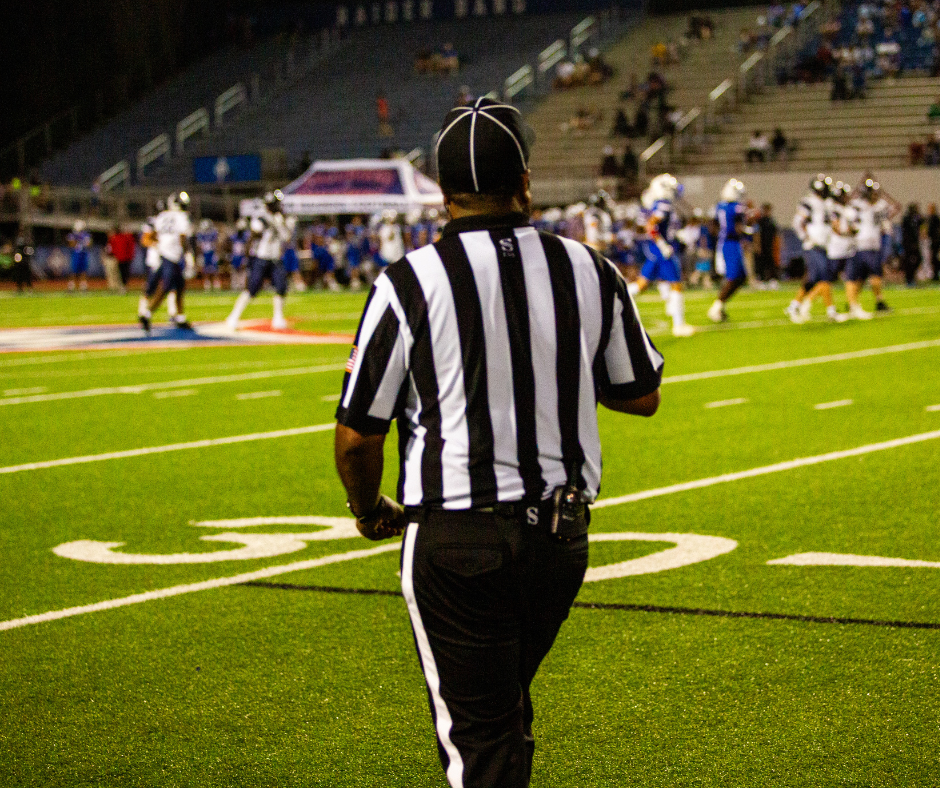
Section Branding
Header Content
GPSA Meets To Discuss Possible Defection
Primary Content

Courtesy of the AJC/ S. Thomas Coleman
Eighty-three coaches and administrators, representing 40 mostly Class A high schools, met Monday as they applied more pressure on the Georgia High School Association to readdress what they feel is a competitive imbalance between public and private athletic teams or face a massive membership defection.
The group, tentatively calling itself the Georgia Public Schools Association, was led by an eight-member advisory committee and presented those in attendance with information about the proposed rules, policies and bylaws of the new organization.
“The nature of a private school is to recruit,” said William Huff, Terrell County football coach and athletic director, and GPSA advisory committee member. “That’s just the bottom line. That’s an advantage they have. At Terrell County, we play the kids who get off the bus everyday, the kids who live in our [zoned] neighborhoods.”
Ironically, the more established GHSA will meet Tuesday at Macon’s Centreplex, making this Middle Georgia city the epicenter for all things that could possibly reshape the landscape of high school athletics across the state. The primary purpose was to approve new classifications and region assignments, but the GHSA membership and its executive committee could offer a proposal that might appease the disgruntled schools.
“No one has called and talked to me about anything new that might come up at the meeting,” said Ralph Swearngin, GHSA executive director. “However, once items get brought to the floor, [the meeting] could go a lot of ways. We’re going into it based on the agenda that we have before us, and will move forward based on our constitution.
“It would not surprise me if some idea is brought forward.”
Swearngin dismissed a rumor that Georgia Public Television has told the GHSA it will televise only five state championship football games next year, though there are now six classifications.
“There has been no such discussion with Georgia Public Broadcasting,” Swearngin said.
Those who attended Monday’s GPSA meeting will fill out ballots on what to do next once results of Tuesday’s GHSA meeting are known, said Chad Davis, principal at Wilcox County and GPSA advisory committee member.
The ballots have three options: Commit to pull out of the GHSA and join the GPSA, stay in the GHSA or undecided.
“This will give us a better idea of where everyone stands,” said Davis, who reiterated his stance, which is total separation of public and private schools in the playoffs and championship games.
Davis said he and Swearngin have talked since the GPSA’s renegade movement began, but the conversation was casual and did not deal with any substantial issues.
However, one idea floated by the GHSA was to separate public and private schools in Class A in every sport except basketball and football for a two-year trial period, starting with fall sports this year. Another part of the proposal was to use the general population surrounding each school as a consideration when dividing schools into the various classifications.
However, that’s not enough to appease Davis and others involved in the GPSA movement.
“I think most people feel the way I do. I think most of us want the GHSA to fix the problems. But we don’t think that they will,” Davis said.
“This public-private issue is not unique to Georgia,” said Alan Ingram, football coach at Seminole County in South Georgia and member of the GPSA advisory committee. “The difference is states like South Carolina, Florida and Tennessee have dealt with the issue. The GHSA has not.”
Still, many at the meeting on Monday held out hope that the GHSA will come up with a plan that will satisfy a portion of the disgruntled membership.
“At this point we are not in favor of pulling out; we’re simply here on a fact-finding mission,” Clinch County Superintendent Gayle Hughes said.
Any decision to leave the GHSA would have to be approved by each individual school board.
“Ultimately, what we want is a fair playing field for our students,” Hughes said. “What we heard was good, a good first step, but we will not make a rash decision on this.”





